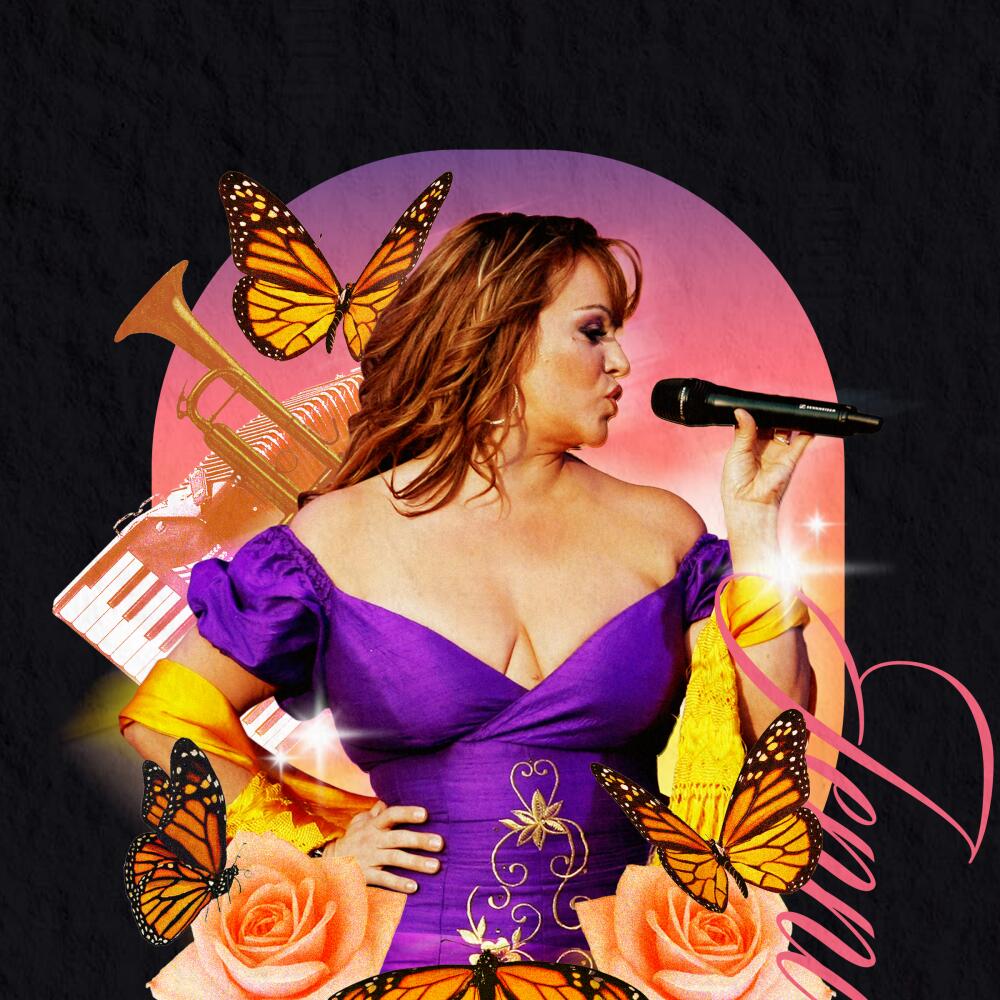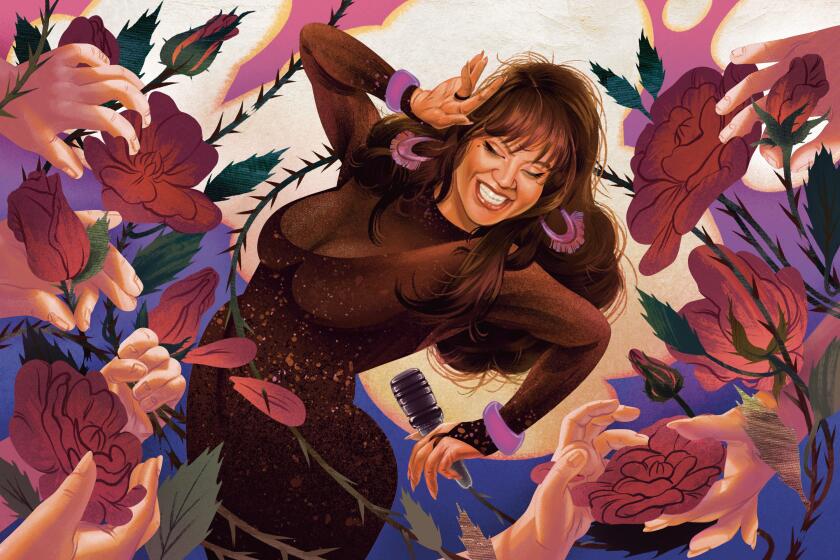
- Share via
Jenni Rivera was grand, and her legacy shows it.
With more than 20 albums under her belt, the self-described “Diva de la Banda” relentlessly reigned as queen supreme of the música Mexicana genre, a historically male-dominated space.
After her tragic death in an airplane crash in 2012, Rivera was revered as a feminist symbol by those who knew her personally.
It’s been nearly a dozen years since Jenni Rivera, an icon of regional Mexican music, perished in a plane crash in Mexico. The relatives who accompanied her on the journey to superstardom are now waging familial warfare.
“Jenni spoke for a segment of the community that doesn’t often get heard — single mothers who work hard every single day, who care for their husbands and families and others but don’t get to complain,” Flavio Morales, former senior vice president of programming production for Mun2, said in 2012. Now rebranded as NBC Universo, Mun2 was the home of “I Love Jenni,” the reality TV show that focused on her family.
The Long Beach-born and -bred singer often used her personal life and relationships to fuel her artistry. She was married three times and was a mother to five children. Rivera also spoke openly about her experience with domestic abuse, a snippet she included in her 2007 “Mi Vida Loca” album.
“She represented an entire community: me, my family, my friends and a whole generation of Mexican Americans who are making up the new America,” Morales said.
On Thursday, Rivera will be honored with a star on the Hollywood Walk of Fame. Fellow Mexican singer Gloria Trevi will speak at the event, and her five children — who are embroiled in a bitter fight with their grandfather, aunt and an uncle over her estate — will accept the star on Rivera’s behalf.
Below is a look at some of her greatest hits.
“La Chacalosa” (1994)
Before there were corridos tumbados, there was “La Chacalosa.” In the song, Rivera gave the perspective of a female drug boss who indulges in an illicit lifestyle. Rivera dove fearlessly into the narcocorrido subgenre at a time when such lyrics were highly vilified by the public. Two years before the release of “La Chacalosa,” Chalino Sanchez, who recorded music under the Rivera family label Cintas Acuario and is often regarded as the father of narcocorridos, was murdered in Sonora, Mexico. The song’s title also became one of Rivera’s many monikers.
“Las Malandrinas” (2000)
Though she had been releasing music since 1992 under her family label, it would take some time for Rivera’s songs to hit the mainstream. “Las Malandrinas” changed that — it was the first of her songs to make it to Spanish radio. The song, laced with live drunken cheers in the background, pays homage to the untraditional woman who enjoys corridos and beer while she sneers at her uppity counterparts.
“Querida Socia” (2001)
Jenni Rivera never shied away from touchy subjects in her music, often exploring torrid love affairs through a morally questionable perspective. The “Querida Socia” banda song is an ode to the other woman and a declaration of love despite the social bounds of marriage. Eight years later, Rivera would provide the married perspective in the mariachi song “La Gran Señora,” muttering the phrase “old hag” to the other woman.
“Amiga Si Lo Vez!” (2004)
With “Amiga Si Lo Vez,” Rivera pulls back from her typically tough act facade to deliver a slower ballad. Her power vocals shine through the brass-heavy classic while the lyrics showcase her vulnerability as she expresses heartache over a lost love, yearning for their return.
“De Contrabando” (2005)
Believe it or not, one of Rivera’s most popular songs is actually a cover. Though originally written by Mexican crooner Joan Sebastian, she made “De Contrabando” her own. The track’s timid piano entrance breaks into a full-on banda that features a muted trumpet and catchy chorus. The lyrics are about accommodating to discreet love as the other woman.
“Inolvidable” (2007)
Leave it to “La diva de la banda” to forewrite her legacy in a single song. The brass-forward anthem is a declaration to past lovers that Rivera will forever live in their hearts and memory. It now symbolizes Rivera’s cultural footprint after her passing. The song ends with Rivera sassily proclaiming that she’s “unforgettable, baby!”
“Mariposa de Barrio” (2007)
“Mariposa de Barrio” synthesizes Rivera’s journey through music. In it, she self-describes as a caterpillar facing dark challenges through life before developing her butterfly wings on stage, which she declares as her true love. Though it’s not noted in the song itself, Rivera dealt with domestic abuse, infidelity, divorce and more in her personal life. “Mariposa de Barrio” is also the theme song for the Netflix series by the same name, based on Rivera’s autobiography “Unbreakable: My Story, My Way,” which was published posthumously.
More to Read
The Latinx experience chronicled
Get the Latinx Files newsletter for stories that capture the multitudes within our communities.
You may occasionally receive promotional content from the Los Angeles Times.








